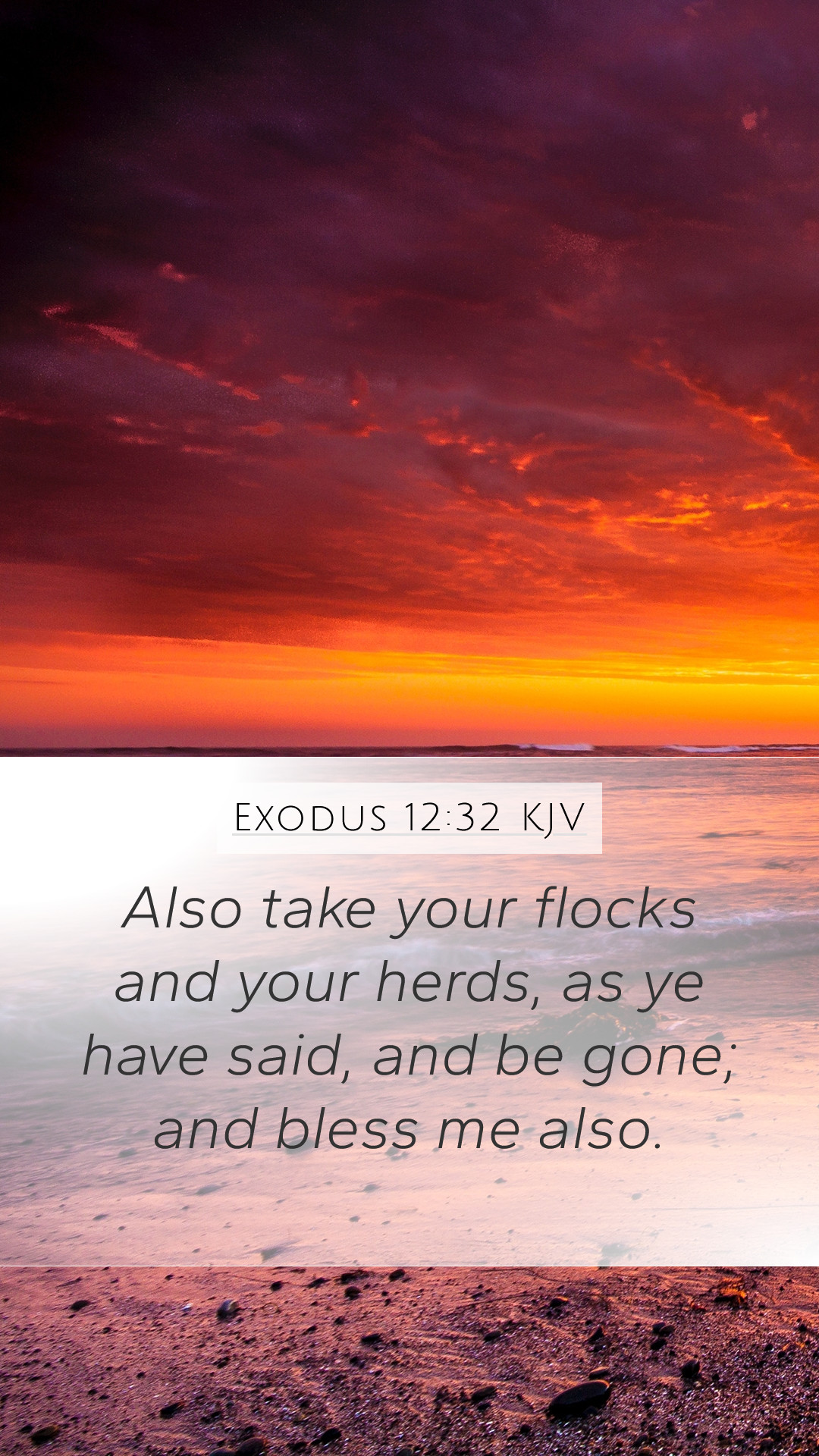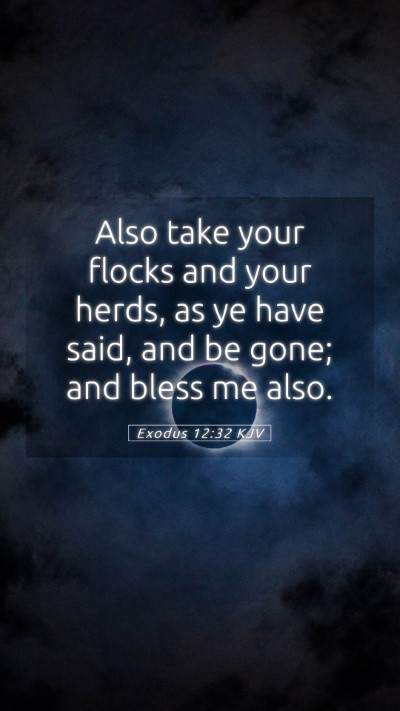Understanding Exodus 12:32 - Summary and Commentary
Bible Verse: Exodus 12:32
In this verse, Pharaoh, after enduring the plagues sent upon Egypt, is compelled to let the Israelites go free. The command is clear, as he tells Moses to take the people and their belongings, indicating a moment of urgency and finality in their release.
Insights from Public Domain Commentaries
Matthew Henry's Commentary
Matthew Henry emphasizes the providence of God in the deliverance of Israel. He notes that Pharaoh, having experienced the devastation of the plagues, is finally inclined to let the Israelites leave. This highlights both the power of God and the stubbornness of Pharaoh, who had previously refused to heed God's command through Moses. Henry sees this moment as a significant turning point in biblical history, where God’s judgment leads to the liberation of His people.
Albert Barnes' Notes on the Bible
Albert Barnes points out the significance of Pharaoh's admission that the Israelites must leave with their possessions. He interprets this as a sign of Pharaoh's deep state of distress and recognition of the futility of opposing God. Barnes discusses how this moment is not just an act of releasing slaves but a pivotal event in fulfilling God’s covenant promises. The command to take livestock and goods reflected God's provision for His people as they prepared to embark on their journey to the Promised Land.
Adam Clarke's Commentary
Adam Clarke analyzes this verse with great detail, asserting the urgency in Pharaoh’s command. He comments on the nature of the Israelites' exit, describing it as not merely a physical departure but a spiritual awakening for the chosen people. Clarke notes that Pharaoh's consent also illustrates the broader theme of liberation from bondage, which resonates throughout Scripture and foreshadows Christ's ultimate sacrifice for salvation.
Summary of Key Themes
- Divine Sovereignty: The situation reinforces God's power over human authority.
- Deliverance: Represents the breaking of chains from oppression.
- Provision: God ensures His people have what they need for their journey.
- Judgment: The plagues signify God's judgment on Egypt’s idolatry and disobedience.
- Historical Context: Understanding this verse requires consideration of the broader narrative of Exodus and God’s deliverance plan for Israel.
Application of Exodus 12:32
This verse serves as a powerful reminder in a believer's life. It encourages reflection on how God works through difficult circumstances to bring about deliverance. Just as the Israelites were compelled to leave behind their bondage, so too can individuals seek freedom from the burdens in their lives, trusting in God's providence and timing.
Cross References
- Exodus 3:19-20 - God forewarns of the plagues to soften Pharaoh's heart.
- Exodus 10:3 - God commands Moses to confront Pharaoh again.
- Exodus 11:1 - Announcement of the final plague that leads to the Exodus.
- Exodus 13:17-18 - The Israelites flee from Egypt as a free people.
Conclusion
Exodus 12:32 encapsulates a moment of decisive action in the biblical narrative, reflecting deep spiritual truths and God's ongoing plan for His people. The collaborative insights from commentaries underscore its significance in understanding both the historical context and its theological implications for believers today.


